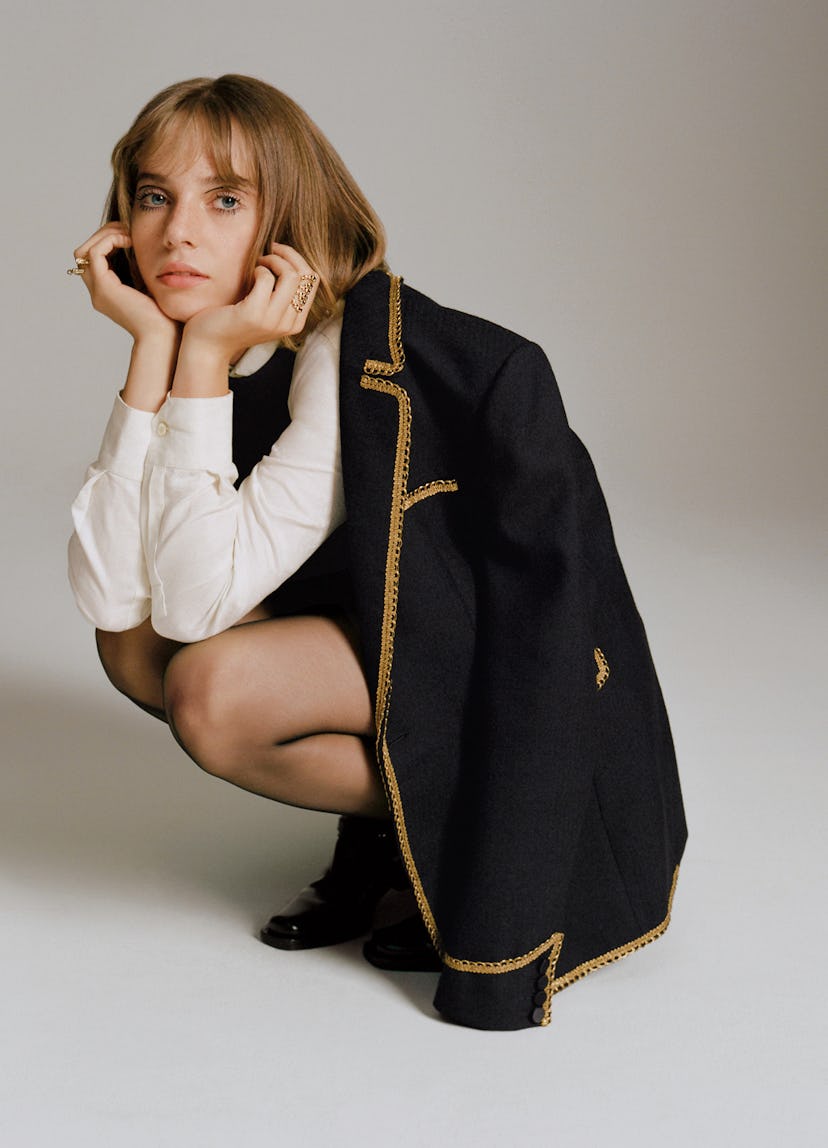Maya Hawke, Daughter of Uma Thurman and Ethan Hawke, Has Stardom in Her Genes

Maya Hawke likes to joke that she applied to Julliard “just to avoid having to do well on the SATs.” But the reality is that she’s been acting for as long as she can remember—“I did every school play,” she says—and she’s never really been able to imagine herself doing anything else.
“I’ve been getting up on stage and saying beautiful words and trying to make people laugh since I was really little and nothing makes me feel better in my own skin,” says the lanky, still slightly coltish 20-year-old, who ended up dropping out of drama school after just a year, when her role as Jo March in the 2017 PBS miniseries Little Women conflicted with her class schedule. “For me, acting has always felt like something you just do—the idea that anyone didn’t perform in plays was bizarre to me.”
That’s not surprising, of course, considering that her parents, Ethan Hawke and Uma Thurman, have been movie stars her entire life. But it doesn’t mean entering the family business hasn’t been complicated. “Everything feels loaded,” admits Hawke, when asked whether her famous name and eerily familiar face (she’s a dead ringer for Thurman, with the same husky voice) have added a certain pressure to her nascent career. “But life is wonderful because it is loaded, so hopefully things will just become more loaded as time goes on.”
Maya wears Saint Laurent by Anthony Vaccarello jacket and pants; vintage turtleneck; Lagos earrings; stylist’s own belt.
It’s a safe bet that they will. Hawke, who will play a character named Robin in Stranger Things 3, an experience she describes as “so collaborative and creative,” will make her big screen debut this summer in Quentin Tarantino’s *Once Upon a Time in Hollywood*. It’s a project that she insists she pursued—auditioning and sending tapes “the way everyone else did”—despite Tarantino and Thurman’s long and complicated history. (He made her a star but also, she contends, once tried to kill her. The two feuded for years.)
In the end, the opportunity to work with the sometimes controversial auteur, she says, was too exciting to pass up. “It’s an incredible experience to be directed by someone who loves making movies as much as he does,” she says of Tarantino, who she’s known for as long as she can remember. “The difference between Quentin and everyone else is that if he wasn’t a big time director he’d be working at the local video store. He’s a film addict. And that love is contagious and full-body and liberating.”
The project was also, Hawke notes, a chance to put her Julliard training to good use. “Quentin sets things up so you can really use everything you learn in acting school,” she says. “Everything is moving towards digital now but I got to act on film. And we shot a scene over a period of four days, so you got to really rehearse and do it from every angle. It’s like making a movie in the seventies.” Gossip columns will no doubt have a field day with the familial back story, but Hawke—who will soon start work opposite Liev Schreiber and Marisa Tomei on the film adaptation of Stephen Amidon’s novel, Human Capital—actually seems to welcome the baggage. “The more emotionally dense a situation is,” she shrugs, “the better you’ll be able to act through it.” In that case, expect an Oscar-worthy performance.